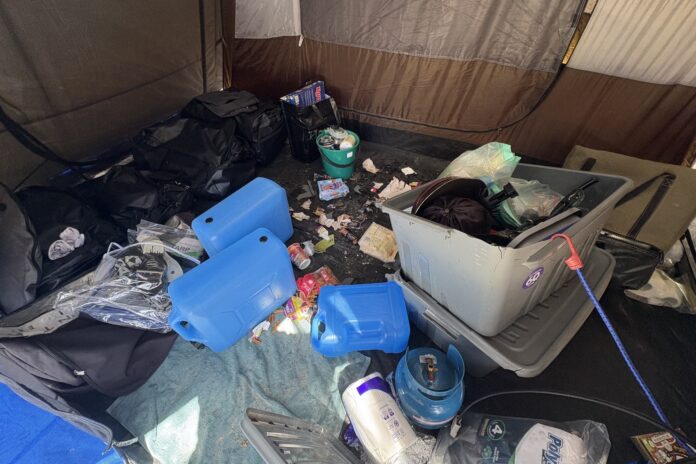Authorities say dingoes are becoming increasingly brazen on a popular island, where they’ve ripped open tents, raided eskies and knocked over bins in search of food.
Photos released by rangers on K’gari show the aftermath of recent scavenging, with tents slashed open and food strewn across campsites – a result of unsecured supplies and rubbish attracting the animals.
Dr Linda Behrendorff from the Department of Environment, Tourism, Science and Innovation said dingoes recently gorged themselves after breaking into a tent and loitering around a camping area.
“Dingoes are opportunistic by nature and have torn open tents, can chew eskies open and knock over bins before ripping rubbish bags apart,” she said.
“Wildlife scavenging around camping areas is a common occurrence and the problem with leaving food or rubbish where dingoes or other wildlife can get it makes them less fearful of humans.
Want more free local news? Follow Sunshine Coast News on Facebook, LinkedIn and Instagram, and sign up for our FREE daily news email.
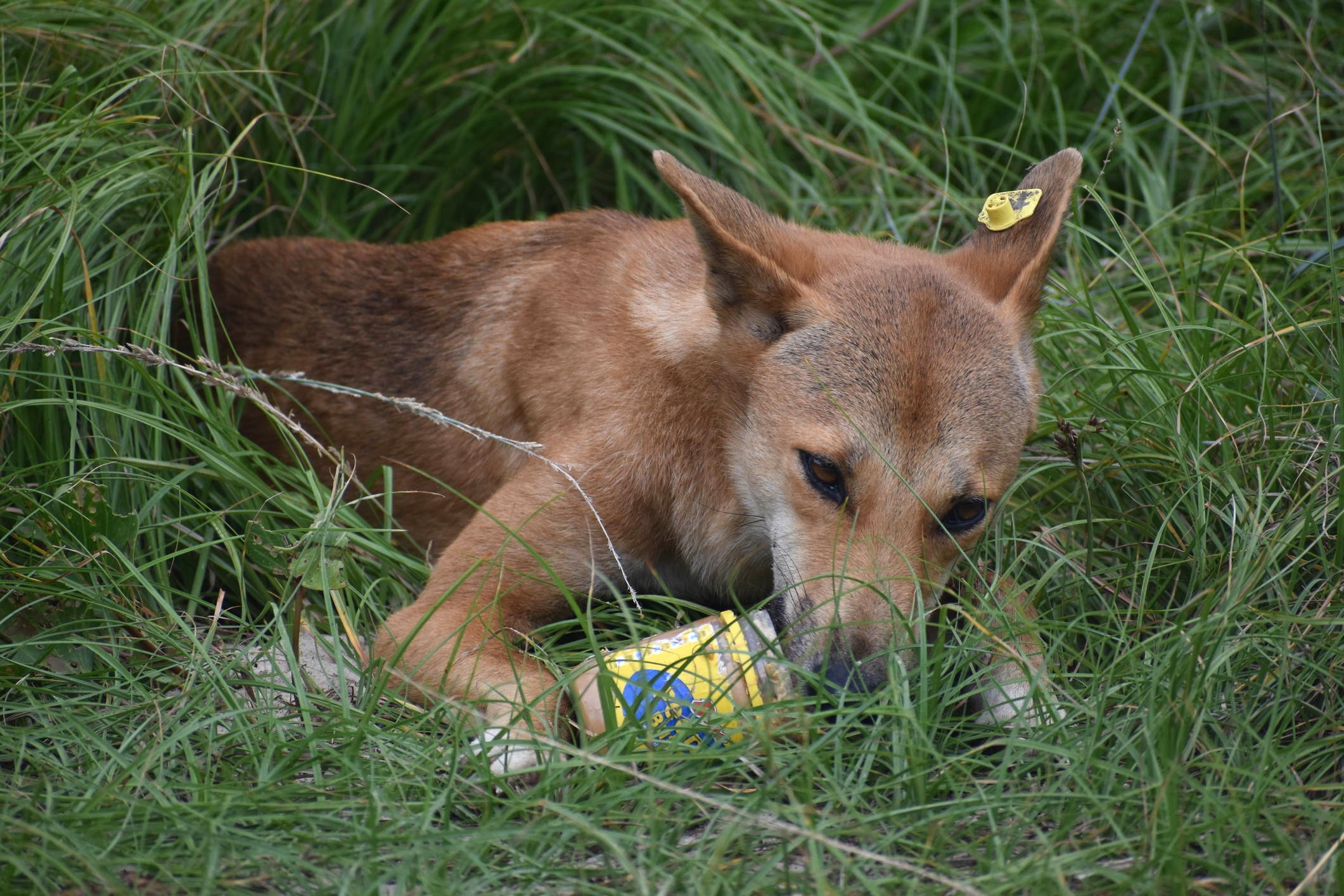
“Dingoes don’t differentiate between food and rubbish and they can start approaching people for food, which puts dingoes and people at risk.
“Even in fenced areas, campers must ensure that all food and rubbish is stored in strong, secure containers and kept in an inaccessible place such as a vehicle cabin or an enclosed ute tray.
“A tent or annex is not a secure place and dingoes have also taken people’s belongings such as clothing, toiletries or shoes that carry the smell of food.
“Fishers should bury fish frames and unused bait at least 50cm deep in the sand to prevent dingoes digging it up.
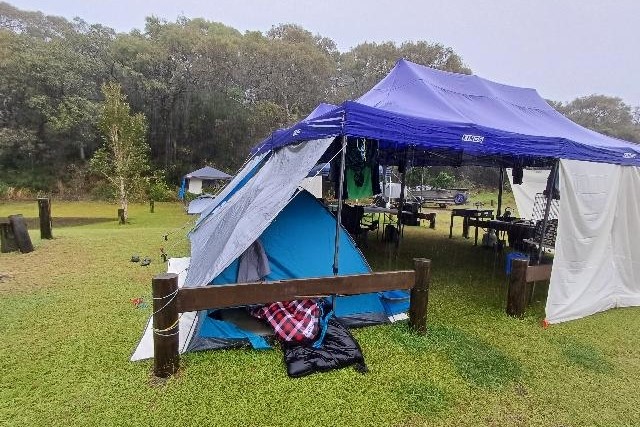
“During the school holidays, we’re asking everyone to secure your camping area, secure your food and shoo dingoes away if they’re lingering nearby.”
Bins are provided on K’gari and people were encouraged to use them properly and not to leave bags of rubbish beside them.
The DES stated that there were several reasons to prevent dingoes getting access to food and rubbish.
“They will eat a wide variety of foods, including rubbish.”
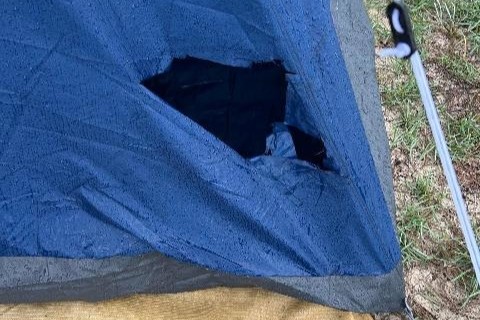
“Feeding dingoes or leaving food unattended can lead to them losing their natural fear of humans and becoming familiar and habituated to human-provided food, making them more likely to scavenge.
“There is plenty of natural food for dingoes on K’gari. They are opportunistic predators, and if food is readily available in the form of rubbish, they will likely scavenge for it, especially if it is easier to obtain than hunting.
“Never feed dingoes: it is illegal and can have serious consequences for both people and dingoes.
“If dingoes don’t find food at your camping area, they are more likely to hunt or scavenge for natural food.”
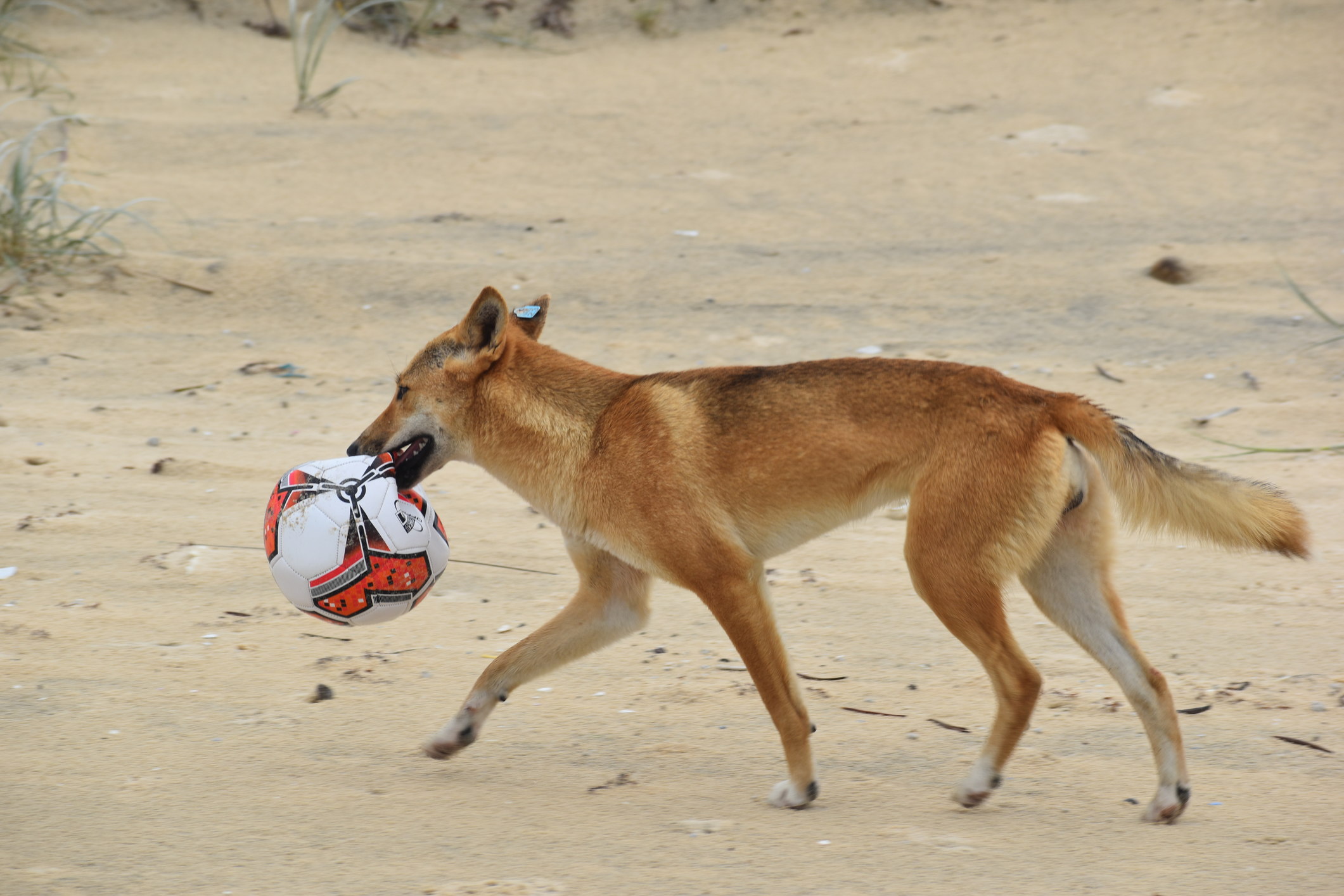
It is an offence to deliberately or inadvertently feed dingoes. On the spot fines include $2580 for deliberately feeding a dingo and $464 for food availability. The maximum court-imposed penalty for feeding dingoes is $26,614.


